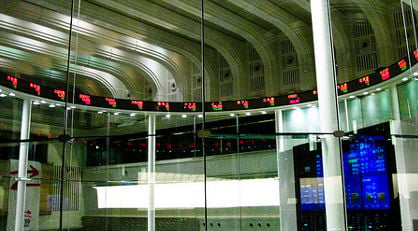The 0.02-percent levy applies to derivatives deals lasting less than half a second and is the second part of new financial transaction taxes being imposed in Italy.
It applies to transactions involving Italian stocks or indices and is calculated based on the product's overall value.
A tax on all share transactions was installed in March.
"This is a complete novelty because no country had yet gone so far," business daily Il Sole 24 Ore said.
Investors have been concerned it could cut trading volumes and there have been delays with the new law because of confusion about how it would be applied.
Market operators on Monday noted that trading volumes had gone down, Il Sole 24 Ore said, adding however that it was "premature" to draw conclusions.
"The volumes on contract for difference (a type of equity derivative) with the FTSE MIB index have gone down 12 percent compared to the first few hours of trading last Monday," one operator said.
The report said the estimated yearly intake from the tax is €200-250 million – lower than previous estimates – and there could be additional costs from investor flight to avoid the tax.
Ten other European countries are preparing to introduce similar taxes on financial transactions, a prospect that has concerned experts worried about a possible wider impact on the economy.



 Please whitelist us to continue reading.
Please whitelist us to continue reading.
Member comments